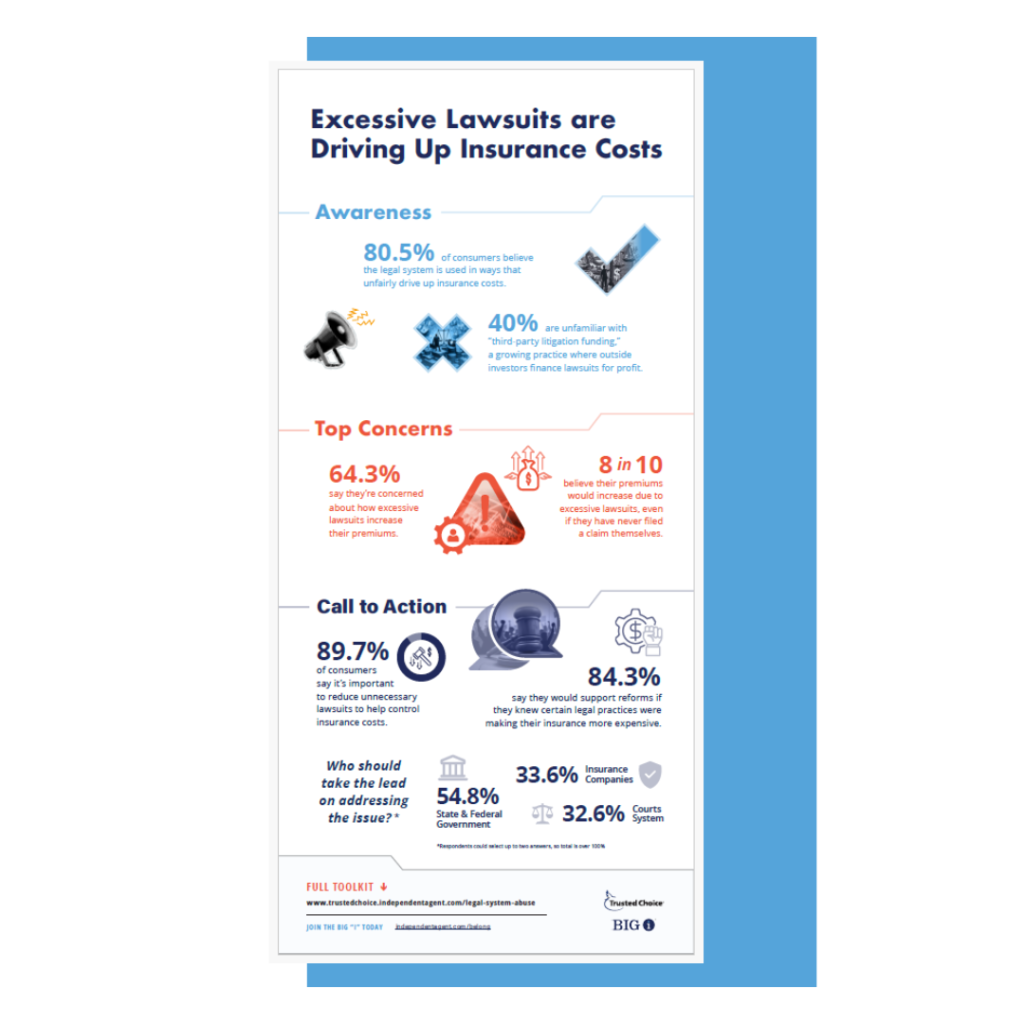Are CSRs “Exempt” Employees?
Is the customer service representative (CSR) position in an insurance agency considered to be “exempt” or “nonexempt” under the Fair Labor Standards Act (FLSA)? This was a question recently posed to our agency management faculty. In this article, several faculty members provide an opinion, along with an article by Judi Newman on related overtime issues.
Author: Judi Newman Is the customer service representative (CSR) position in an insurance agency considered to be “exempt” or “nonexempt” under the Fair Labor Standards Act (FLSA)? This was a question recently posed to our agency management faculty. In this article, several faculty members provide an opinion, along with an article by Judi Newman on related overtime issues.
“There is lots of confusing information about this online, and no one seems willing to commit one way or the other, leaving it a very subjective kind of thing to have to figure out – and that’s scary. Are there any statistics about this for our industry? Isn’t this position fairly generic within our industry? Isn’t there a formula that can be applied within our own industry that would be far simpler to use than the flood of guidance available on the Internet and from the government?”
I have reviewed this every which way to Sunday and, in my opinion, under no circumstances will a true “CSR” customer service rep position ever pass the test, if put to it by FLSA, as being exempt. Among the exceptions to the Act, the most frequently applied are the executive, the professional, and the administrative exceptions. An employee who has supervisory authority over other employees and is paid a salary (that is, not paid on an hourly basis) is considered to be an executive. A professional employee is generally an individual whose work is based on an advanced degree, such as a lawyer or doctor. The administrative exception is relatively narrow, limited to the confidential secretaries of certain executive-level employees. Individual employees who fall into one of these three exceptions are “exempt” from overtime calculations. A quick overview of each of these might open the way for someone to believe that a CSR could fall into the administrative category. I have put together a test for the administrative employee. Answer each point like you are on the witness stand. Here it is: ADMINISTRATIVE EXEMPTION TEST If employees are paid at least $250 per week, or $13,000 annually, they will be exempt from the overtime provisions of the FLSA if…
Primary Duty Requirement To be exempt under the Administrative Exemption Test, employees should spend at least 50% of their time performing non-manual work which is directly related to…
Discretion & Independent Judgment Requirement In determining whether or not employees’ primary duty includes work requiring the exercise of discretion and independent judgment…
Real Discretion and Judgment Requirement With regard to real discretion and judgment, the employees’ work should involve…
Substantial Discretion & Judgment Requirement With regard to substantial discretion and independent judgment, it is important to remember that the work under consideration is part of the employees’ primary duty. Hence, unless it involves the administration of academic instruction, it must be…
Discretion and Judgment Requirement One of the most frequent causes of misinterpreting the term, “discretion and independent judgment” is the failure to distinguish it from the use of skill (Donovan v. Simmons Petroleum Corp., 1981).
Because of the blurred distinction between highly skilled work and work requiring discretion and judgment, the Wage and Hour Division of the Department of Labor issued regulations (Public Law 101.583) permitting some workers in the computer software field to be classified as exempt even if they are paid hourly. Effective November 9, 1992, Public Law 101-583 allows highly skilled computer software employees who are paid hourly to be classified exempt if…
Public Law 101-583…
The Overtime DilemmaMost agency owners feel that their CSRs are professionals. They are required by the state to have a license to sell insurance while some even have other certifications like ACSR, CISR, CPSR, CIC, and others. Since they are professionals, you may consider them to be exempt employees and therefore not entitled to receive overtime pay. You couldn’t be more WRONG! Just because an employee is licensed by the state doesn’t necessarily make them a professional. Hairdressers and manicurists are licensed by the state, yet you wouldn’t think about not paying them overtime if they were your employees. Just because you pay “salary” instead of hourly, doesn’t create a situation where employees are exempt from overtime. The Fair Labor Standards Act (FLSA) was created to establish minimum wage, overtime pay, record keeping and child labor standards for non-exempt employees. In this article we will be talking about overtime and the age-old dilemma of “to pay or not to pay.” Overtime Pay The FLSA requires that overtime be paid to most employees at the rate of one and one-half times their regular rate of pay when employees work more than 40 hours in a week. Overtime compensation must be paid on the regular payday for the pay period covered and, with one exception, overtime compensation must be paid in currency. The only exception to this rule is that employers may deduct the reasonable value of lodging or meals in certain circumstances. (As explained in this article, the regular rate of pay is equal to an employee’s hourly rate of pay or higher). The majority of employees in this country are covered by the FLSA. Violations of Overtime Pay Laws…Examples Unfortunately, numerous employers violate overtime pay laws in varied and sometimes creative ways. Some of the most common violations by employers to the overtime laws are:
In fact, in overtime pay cases, courts start with the premise that all employees are entitled to overtime compensation. Only those employees who an employer can prove fits within one of the exemptions to the FLSA can lawfully be denied overtime pay. State laws can provide benefits that are in addition to the benefits provided under the FLSA. For example, some states require employees who are not covered by the FLSA to be paid overtime compensation. In addition, some states require that overtime be calculated at higher rates than the FLSA. It is important to understand when overtime must be paid. The difference between exempt and non-exempt employees must be tested. Not only is it important to understand the who and the when, equally important is to make no mistake about how to calculate how much overtime pay is to be paid to an employee. Computing The Regular Rate Of Pay The regular rate of pay is the rate at which overtime compensation must be calculated. For each hour of overtime worked an employee must be paid one and one-half times the employee’s regular rate of pay. The regular rate of pay does not necessarily equal an employee’s hourly rate of pay. Included in the regular rate of pay are work-related payments that are not made for overtime work such as shift differentials, bonuses, longevity pay, educational incentive pay, etc. Thus, the regular rate always equals or exceeds an employee’s hourly rate of pay or, if the employee is salaried, the employee’s hourly equivalent. Some examples of types of payments included in the regular rate of pay are explained below:
Computing The Regular Rate For Salaried Employees Most salaries are intended to compensate an employee for his or her regularly scheduled hours during the workweek. To compute the regular rate of pay, the salary plus all other inclusions in the regular rate is divided by the number of hours that the salary is intended to compensate the employee. The employee is entitled to receive one and one-half times his or her regular rate of pay for each hour worked over 40 hours in a week. For example, if an employee is paid $600 a week as salary and works a work schedule of 40 hours a week, the employee’s overtimes rate of pay is computed by dividing $600 by 40 or $15 per hour. Thus, for each hour worked over 40 hours a week, the employee is entitled to receive 1.5 times $15.00, which equals $22.50 an hour. Some Commonly Used, But Prohibited, Payment Methods So let’s assume your CSRs and receptionist and other clerical people are non-exempt and you have a written policy in your employee handbook that says “No overtime unless approved by management.” But, as a manager, you know that a CSR is coming in early and/or staying late to get the work done. Since this overtime has not been authorized, you feel that you are not required to pay accordingly. This is not true, the law is clear on payment of overtime authorized or not. If an employee chooses to put in extra hours and you as the employer have knowledge of this, you must still pay overtime. Otherwise, the law suggests that you have been unjustly enriched. Fixed sum for varying amounts of overtime Salary includes regularly scheduled overtime hours Bonus as part of overtime pay Overtime Must Be Paid In Cash When Does Travel Time Count as Overtime Work? Generally, travel time conducted for work during work hours is compensable whereas ordinary home-to-work travel is not. Set forth below are some different travel circumstances:
When Does Training Time Count as Overtime Work? Attendance at training sessions, meetings and lectures must be counted as work activities unless all four of the following criteria are met:
Attendance is not voluntary if the employee is led to believe that his or her present employment would be adversely affected if he or she did not attend. Break Time is Compensable Although there is little case law on the issue of whether breaks are compensable, the U.S. Department of Labor’s rule is that if a break or rest period is twenty minutes or less, the break time is compensable. Longer breaks, including meal breaks, may be compensable, as well, depending on the circumstances. On-Call Time Some employees are required to remain available at home or on the employer’s premises during meal periods to respond to calls in person or through a telephone or pager. Clearly, the time spent responding to calls, including time spent at home on the telephone or computer responding to calls or E-Mail, is compensable. In determining whether on-call time is compensable, the factors that courts have viewed include:
On-Duty Meal Periods are Compensable The Department of Labor’s regulations require that meal periods be counted as compensable work time unless the employee is “completely relieved from duty for the purposes of eating regular meals.” Thus, employers who impose work-related restrictions on employees during their meal periods, such as answering phones or responding to work related requests should pay employees for their meal periods. Some courts apply a different test than the Department of Labor’s meal period test. These courts have applied what is called the predominant beneficiary test. Under the predominant beneficiary test, courts determine whether the employer or the employee is the predominant beneficiary of the meal period. Under this test, employees who are required to remain on the employer’s premises in a place which is not a dining room, or in some other area which is not an eating facility, are usually found to be entitled to compensation for their meal periods. In these circumstances, the employer has been found to place substantial restrictions on the employee during the meal period for the employer’s benefit. Waiver of Overtime Pay Can an employer and employee agree to waive overtime pay? No! Overtime pay may not be waived by agreement between the employer and employee. If the employer does not want employees to work overtime, it must establish AND ENFORCE workplace rules prohibiting overtime. In addition, an employer who is caught violating the overtime laws will not avoid back payments by cutting a deal directly with employees. Courts have found that agreements that purport to waive back overtime pay claims are unenforceable unless the Department of Labor supervises them or an attorney represents the employee. WHO CAN LEGALLY BE DENIED FLSA OVERTIME PAY? The FLSA has a number of categories of employees who are exempt from the overtime laws. In some cases, however, state laws cover the employees who are exempt from the FLSA. In addition, exemptions are applied on a workweek basis. Employees who perform non-exempt duties in a workweek typically are not exempt that week and are entitled to FLSA overtime compensation for overtime hours worked that week — regardless of their FLSA status the rest of the year. GENERAL PRINCIPLES There are a few well-established principles regarding exemptions to the Act.
“WHITE COLLAR” EXEMPTIONS The “white collar” exemptions apply to the administrative, professional and executive exemptions. They are misnamed the “white collar” exemptions because in today’s economy the overtime laws cover many office workers. These are the most commonly misapplied exemptions. Many employers and employees mistakenly believe that if an employee is salaried then regardless of what the employee does, he or she qualifies as an administrative or professional employee. This is wrong. To qualify as an administrative, executive or professional employee, an employer must prove both that an employee is paid on a salaried basis and that the employee performs the duties of the claimed exemption. This means that workers paid on an hourly basis can not be excluded from receiving overtime pay on the basis that they are an administrative, professional or executive employee. Many employees, however, who are paid on a salaried basis are entitled to overtime compensation because they do not perform the duties of an administrative, executive or professional employee. It is IMPORTANT to remember that the administrative, executive and professional exemptions do not apply to hourly paid employees. In other words, to apply these exemptions to an employee, an employer must prove that the employee is paid on a salaried basis, and that the employee’s job duties fit within the claimed exemption. Many salaried employees are entitled to overtime pay because their duties do not meet the test for the overtime exemption their employer is claiming. JOB DUTIES TESTS FOR THE ADMINISTRATIVE, EXECUTIVE AND PROFESSIONAL The duty tests for each of these exemptions can be quite complicated. Each exemption sets forth a three-part test, which is briefly outlined below. To qualify for the exemption, the employer must prove that the employee’s primary job duties meet all aspects of the duty test. The term primary job duty generally means activities that encompass fifty percent (50%) or more of an employee’s work time. The primary job duty requirement means that an employer cannot deny an employee overtime pay on the basis of collateral assignments to the employee that may fit within one of the exemptions. Administrative Exemption The administrative exemption is limited to employees who make decisions with regard to matters of significance concerning the internal operations of their employer. It is intended to apply to people in jobs such as personnel, labor relations, high-level budget analysts, management analysts and other similar types of employees. To be exempt from receiving overtime compensation as an administrative employee, an employee’s primary job duty must involve…
Note that the test for the exemption is a three-part test and that all three parts must be established for the employer to exempt employees from receiving overtime pay. In addition, the Department of Labor and the courts have applied a production worker/administrative worker distinction in which the workers who perform the day-to-day work necessary for an employer to fulfill its mission can not qualify as administrative employees. Executive Exemption The executive exemption applies to managers and high level supervisors who are paid on a salaried basis. A two-part duty test is used to determine whether salaried employees can legally be denied overtime compensation on the basis that they are “executives.” (There is a three-part test that is applied to employees who make less than $250 a week). To prove that its employees meet the duty test, an employer must establish that the primary duty of the employee is managerial. As a general rule of thumb, this means that the employee spends fifty or more percent of his or her time performing managerial duties. Second, the employer must establish that the employee customarily and regularly directs the work of two or more employees. In a 1999 decision, a federal court ruled that employees with the title “supervisor” who did not supervise a permanently assigned group of employees were improperly classified as exempt executives. The supervisory employees were found to be more like group leaders or forepersons than managers because they supervised the activities of different employees each week or month. Professional Exemption? Learned Professions The professional exemption is intended to apply to employees who work in recognized professions that typically require a four year college degree or higher such as doctors, lawyers, engineers, architects, scientists, teachers in a recognized school system, etc. Disputes involving professional exemption typically arise when an employee has developed an area of expertise through on-the-job experience that the employer attempts to claim is a profession such as equipment technicians or journalists. Also, disputes can arise when a person who is trained as a professional is not performing professional work such as an accountant who is doing bookkeeping. There is a three-part duty test for the professional exemption. With two exemptions, an employee who is not salaried can not be exempted from receiving overtime compensation as a professional regardless of the employee’s job duties. The exemptions are for teachers, and doctors and lawyers who hold valid licenses to teach, practice medicine or law To exclude an employee from receiving overtime pay as a professional, an employer must prove that an employee meets all three parts of the test. The first step is that the employee’s primary job duty must be to perform the work of a “profession.” This means that the work that the employee is performing is the type of work that is typically performed by persons who have developed an area of expertise by obtaining a four year degree through college study or higher in a specialized field. To be considered a professional under the FLSA, the employee must have both practical and theoretical knowledge of the profession. Second, the employee’s work must consistently involve the exercise of independent judgment and discretion with regard to important decisions within the profession. Third, the work must be intellectual and varied as opposed to routine, mechanical or physical work. It cannot be the type of work that can be easily standardized. Computer Professional Exemption This exemption is limited to computer programmers and computer systems analysts. In contrast, employees who are engaged in the maintenance, operation or repair of computers and software are clearly entitled to receive overtime. Computer systems analysts, computer programmers, and software engineers in the computer software field are exempt from receiving FLSA overtime only if they meet certain tests Congress has established for the computer professional exemption. The exemption only applies to highly skilled employees who have achieved a level of proficiency in the theoretical and practical application of a body of specialized knowledge in computer systems analysis, programming and software engineering. To be considered an FLSA exempt “computer professional,” the employee must work free from close supervision. In addition, these types of employees are exempt only if their primary job duty involves programming, design, or modification of software, or the application of “systems analysis techniques and procedures, including consulting with users to determine hardware, software or system specifications.” In addition, in order for this exemption to apply, the computer professional must either be paid on a salaried basis, or if he or she is hourly paid, they must be paid at least $27.63 an hour. In other words, hourly paid computer employees who make less than $27.63 per hour cannot be excluded from receiving overtime under this exemption. Outside Sales Exemption This exemption applies to employees who engage in making sales away from the employer’s place of business. It does not apply to telemarketers or any other salespeople who make sales from their employer’s place of business. The outside sales exemption is limited to employees who customarily and regularly work away from the employer’s business making sales or obtaining orders or contracts from clients, and who do not spend more than 20 percent of their work time performing non-exempt work. In other words, 80 percent or more of the hours worked in a workweek must consist of outside sales work, otherwise the sales person is entitled to overtime under the FLSA. Independent Contractor Exemption People who work as employees are entitled to greater legal protections and monetary benefits than independent contractors. Of course, in theory, independent contractors are free from the set work time, discipline and other restrictions that govern employees’ conduct. For more information on independent contractors, see Volume 3, Legal and Taxes, Section LT-10. EMPLOYER RETALIATION The FLSA and many state laws contain provisions that protect workers who file cases to recover overtime from retaliation by their employers. The FLSA provides for backpay, front pay. This is the estimated amount of money that the employee would have earned in the future had he or she not been retaliated against. There is also injunctive relief that orders the employer to refrain from its conduct and monitoring the employer’s behavior. This relief could include double damages, interest, attorneys’ fees and costs. EMPLOYER OVERTIME VIOLATION The Wage and Hour Division of the Department of Labor is responsible for enforcement of FSLA including overtime issues. An employer can be penalized up to $1,000 per violation in civil court. Willful violation can also be prosecuted criminally with fines up to $10,000. Employers may also be responsible for back wages, back overtime and damages. WHERE TO GET MORE INFORMATION There are a number of sources available that provide general information regarding overtime laws. For example, the U.S. Department of Labor’s website located at www.dol.gov is helpful in providing general information. Many states also have a website with information on state laws governing overtime. This article was excerpted from the Master Agency Manager…which should be in EVERY agency’s library. For additional information, contact:
[Editor’s Note: For additional information on compensation and many other agency management issues, Judi produces a three-volume agency management reference manual called The Master Agency Manager (MAM). Be sure to check out Judi’s bio or contact her to find out how you can subscribe to this manual.] Copyright 2002 by Phaze II Consulting, Inc.. Used with permission. |
 “Within the insurance agency industry, is the customer service representative position considered to be ‘exempt’ or ‘nonexempt’ under FLSA?
“Within the insurance agency industry, is the customer service representative position considered to be ‘exempt’ or ‘nonexempt’ under FLSA? Sure, here’s a simple answer: Maybe, but probably not. Not to appear facetious but, no, there isn’t always a simple answer. Each situation is unique and someone called a “CSR” can actually have duties that go far beyond those of a typical CSR and move them into the “exempt” area. In many cases, though CSRs generally fit the “nonexempt” status. That being said, below are some comments from our faculty and an excellent article on a related subject by Judi Newman.
Sure, here’s a simple answer: Maybe, but probably not. Not to appear facetious but, no, there isn’t always a simple answer. Each situation is unique and someone called a “CSR” can actually have duties that go far beyond those of a typical CSR and move them into the “exempt” area. In many cases, though CSRs generally fit the “nonexempt” status. That being said, below are some comments from our faculty and an excellent article on a related subject by Judi Newman.








